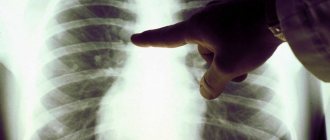- home
- Oncology
- Kidney cancer
Kidney tumor is a common disease, which, according to statistics, affects every 4th person out of 100,000. The incidence is only growing, for example, in Russia there is an increase of 6-10% per year. Kidney cancer is in third place among the most common neoplasms of the genitourinary organs. As a percentage of all neoplasms, kidney tumors account for 3%, of which renal cell carcinoma accounts for 85-90%. The male half of humanity gets sick 2 times more often. The age when the disease usually appears is over 50 years. Women get sick less often and earlier: at approximately 30-40 years of age.
Kidney cancer: how not to miss time?
Few people notice the symptoms of kidney cancer in the early stages; they are attributed to other diseases. Mild lower back pain and fever in the evenings are mistaken for a “cold”, fatigue and weakness are explained by a sleepless night, loss of appetite and weight loss are attributed to stress. A person consults a doctor when blood appears in the urine, but this means that the tumor has already grown greatly. At the slightest suspicion, you must visit a specialist and undergo an examination.
The sooner you receive qualified help, the greater the chance of surviving the disease with minimal consequences. You should know that surgery performed correctly and on time saves 90% of patients diagnosed with kidney cancer. In this case, further chemo-radiotherapy is not required.
Origin of kidney cancer
Organ-preserving surgery - laparoscopy of a kidney cyst. More than 250 operations were performed.
Ecology, stress, and hereditary factors can become prerequisites for the development of malignant tumors. If you study current trends in the diagnosis of kidney cancer, risk factors can be divided into several types:
- Exposure to the external environment
- prolonged low-dose ionizing radiation in residents of regions contaminated with radionuclides. Other environmental pathologies can also cause kidney tumors. - Lifestyle (social factor):
bad habits, medications you take throughout your life, eating behavior, etc. For example, smoking increases the relative risk by 1.5-2 times, high-calorie foods by 1.7, abuse of bloody meat, foods high in fat and carbohydrates by 2-3 times, taking analgesics and diuretics by 1.4, taking phenacetin or aspirin at 1.6, but a plant-based diet and intake of antioxidant vitamins, on the contrary, are reduced. In women, excess weight, especially with arterial hypertension, increases the risk of kidney cancer by 3 times. The use of oral contraceptives reduces the risk. - Occupation (occupational factor):
contact with nitro compounds and cyclic hydrocarbons increases the risk of developing the disease. Workers in the metallurgy, coke and chemical industries, oil refining industries, and those involved in the production of asbestos and organic solvents are 5 times more at risk of developing kidney cancer. - The presence of certain diseases or injuries:
kidney disease, mechanical damage. For example, pyelonephritis, diabetes mellitus, arterial hypertension, long courses of hemodialysis, hyperestrogenism. - Hereditary factor:
hereditary syndrome - von Hippel-Lindau disease or Bourneville-Pringle disease (tuberous sclerosis), a family history of kidney cancer patients (especially brothers and sisters).
Symptoms of kidney cancer
Very important! After 35 years, an ultrasound of the kidneys should be performed once a year, and if a tumor is suspected, a CT scan of the kidneys with contrast is required. I will help to recognize cancer even at an early stage and provide qualified treatment, since at an early stage in most cases I am able to perform laparoscopic surgery and save the kidney.
Symptoms of kidney cancer almost do not appear, people do not know about the tumor until its last stage, cancer can develop slowly, increasing by 4-7 mm per year, the tumor gradually grows, spreading beyond the boundaries of the organ. In 60% of cases, this diagnosis is made by ultrasound or CT by chance (during clinical observation or examination for other diseases), and the patient has no complaints.
If there are clinical manifestations and you notice one of the following symptoms, you must immediately make an appointment with a specialist, as this indicates a large size of the tumor:
- Blood in the urine (gross hematuria).
Appears in later stages. First - a slight admixture of blood in the urine, which appears suddenly and then disappears for several days or even weeks, later - whole blood clots. At the beginning of the disease, blood in the urine is also possible if the tumor has grown into the pyelocaliceal system. When the tumor size is 5.5 cm or more, new vessels are formed, the body cannot meet their needs, they burst, which causes hemorrhages. - Swelling.
As the kidney tumor grows, damage to the veins and lymphatic vessels develops. The thrombus begins to grow in the renal vein, gradually spreading into the inferior vena cava and further to the atrium, the outflow of blood is disrupted. Edema of the lower extremities, varicocele - enlargement of the veins in the legs, varicose veins appear. - Pain.
Aching, then growing, then receding pain in the side, lower back, stomach (just below the navel on the left or right) appears due to the fact that the tumor grows and puts pressure on neighboring organs. However, it may take years for the tumor to grow large enough to touch other organs. - General deterioration of condition (weight loss, weakness, fever, insomnia).
Lack of energy, temperature in the evenings, high blood pressure - intoxication. They are mistakenly attributed to colds, viruses, depression, stress and are not given any significance. - Lump in the abdomen.
When the tumor grows larger than 5 cm, it can be palpated independently. In thin patients, cancer can be felt in the early stages. - Symptoms of kidney cancer metastases.
In later stages, a kidney tumor can metastasize to blood vessels, bones, lymph nodes, liver, stomach, brain, and lungs. In this case, symptoms will appear according to each organ. With metastases to the bones - severe pain throughout the body, lungs - hemoptysis, brain - neurological disorders, etc. The general condition also worsens, physical activity becomes almost unbearable.
To determine the type of kidney tumor, its localization to the main structures of the organ and indications for surgery, as well as choosing the correct surgical treatment tactics, you need to send me a complete description of the kidney ultrasound, MSCT data of the kidneys with contrast, indicate your age and main complaints to your personal email address. Then I will be able to give a more accurate answer to your situation.
Structure and function of the kidneys
The kidneys are a paired organ located in the lumbar region on both sides of the spine. The size of a kidney is approximately the size of a fist.
The kidneys filter the blood to remove impurities, excess minerals and salts, and excess water. Every day, the kidneys filter about 150 liters of blood to produce 2 liters of urine. The kidneys produce hormones that help control blood pressure, red blood cell production, and other body functions.
Most people have two kidneys, each working independently of the other. A healthy kidney is so efficient that the body can function with less than one full kidney. Impaired kidney function leads to intoxication and dysfunction of other organs and systems.
If kidney function is completely lost, a person can live with dialysis, a mechanical filtration process. Dialysis can be done through the blood (hemodialysis) or using the patient's abdomen (peritoneal dialysis).
Diagnosis of kidney cancer
Patent for invention. A method for determining the optimal installation sites for manipulation trocars during laparoscopic operations on organs of the retroperitoneal space “Hand suture in endoscopic surgery”, K. V. Puchkov, D. S. Rodichenko
The latent course of the disease makes early diagnosis of a kidney tumor difficult, but as experience shows, even a late diagnosis allows one to count on a favorable outcome. I can guarantee to help you diagnose a kidney tumor and develop an optimal surgical treatment program.
Why is cancer suspected?
Diagnosis of kidney cancer is possible in different ways, they are used in combination. Radiological diagnosis of kidney cancer is preceded by a detailed examination with palpation, general and biochemical blood tests, cytological examination, and urinalysis. Increased erythrocyte sedimentation rate, enzyme disruptions, anemia, and increased levels of certain hormones, such as insulin and hCG, may be signs of kidney cancer. Based on the results of the examination, medical history and blood tests, the doctor decides on the next steps.
Methods for diagnosing kidney tumors:
- Ultrasound
- CT
- MRI
- X-ray
- Intravenous excretory pyelography
The first stage is an ultrasound examination of the kidneys and abdominal organs; it shows the outline of the kidney and allows preliminary conclusions to be drawn about what is happening to the tissue: is there necrosis, etc. In the differential diagnosis of kidney cancer or cyst, renal angiography is necessary. CT and MRI with contrast will show a detailed picture: the exact size of the tumor, where and how much it has grown, whether there are metastases in the lymph nodes or not, the level of damage to the veins, etc.
Kidney cancer classification
The type of kidney tumor must be determined before surgery in order to prescribe the correct treatment.
Kidney cancer according to the TNM system
A malignant kidney tumor is classified according to the international TNM system, where T means the size of the tumor, N is how much regional lymph nodes are affected, M is whether there are metastases to other organs and which ones. This classification allows doctors at medical centers around the world to compare treatment results and make prognoses for kidney cancer patients. T1 – tumor up to 7 cm, T2 – more than 7 cm, T3 – tumor gradually grows into the veins, T4 – extends beyond the boundaries of the kidney capsule. N1 – metastases in only one lymph node, N2 – in more than one. M1 – there are distant metastases. Those. the most severe form of the disease is described as T4N2M1.
Kidney cancer according to the Robson system:
1st stage:
the tumor develops exclusively in the kidney
2nd stage:
the tumor has spread beyond the boundaries of the kidney capsule
3rd stage:
the tumor has affected the lymph nodes and spread to the veins (renal, inferior vena cava)
4th stage:
the tumor has metastasized to nearby organs and to distant organs
Kidney cancer by histology
Based on the type of cancer cells, clear cell kidney cancer is distinguished (it predominates, about 90% of all cases), chromophilic (papillary), chromophobe, oncocytic, and collecting duct cancer. Kidney cancer is almost always a mixture of all types.
Relationship between stage and prognosis
The prognosis for kidney cancer directly depends on its stage - the maximum size of the tumor. A precisely defined stage helps to choose the right treatment and increase the likelihood of a full recovery, which the doctors at our clinic have been successfully doing for many years.
Differential diagnosis
It's easy to miss cancer and mistake it for a cyst. There are 4 types of cystic neoplasms in the kidneys; cysts of the 3rd and 4th classes can be malignant, i.e. solid tumors or even cystic structures. The probability of cysts being cancerous is almost 50 percent. CT or MRI with fat-suppressed contrast can help accurately determine whether kidney tumors are malignant.
Stages of the disease
Stage I
In the first stage, the tumor is less than 7 cm in size and is located only in the kidney
Stage II
In the second stage, the tumor is more than 7 cm in size and is located only in the kidney
Stage III
In the third stage, tumor cells spread to the lymph nodes closest to the kidney and/or the tumor grows into the kidney vessels (vein/artery) or perirenal fatty tissue
IV stage
In the fourth stage, the tumor spreads to other organs such as bones, lungs, and brain.
Rice. 2 Scheme of kidney tumor stages
Kidney cancer treatment
The main method of treatment is surgical. The rest are used after surgery.
Treatment of kidney tumor:
- surgical removal of the kidney along with the tumor
- kidney resection (removal of the affected part)
- stopping tumor growth and metastases/preventing relapse using targeted therapy (various inhibitors are used)
- immunotherapy
- chemotherapy and radiation therapy (for renal cell cancer they are practically not used, as they are ineffective)
The specificity of kidney tumors is that this type of cancer is almost insensitive to chemotherapy and radiation therapy. In this case, the patient can only be helped by surgery and removal of the tumor.
Which operation should I choose?
Resection of a diseased kidney is considered the safest - removal of a section of an organ with a tumor. Only in later stages is complete removal of the affected organ (nephrectomy) along with tissue and lymph nodes performed.
It is especially important to save a kidney if the second one is already damaged or missing.
The operation can also be performed using different methods: with a complete opening (laparotomy, lumbotomy) or through small punctures in the abdomen - the laparoscopic method. Open operations are performed for late-stage kidney cancer. In our clinic, we try to use primarily minimally invasive techniques that have minimal consequences in the future; these techniques were developed by Professor K.V. Puchkov in 1995 and have now been brought to perfection. The average duration of laparoscopic surgery is about 1 hour, and the hospital stay is 2-3 days.
While many doctors remove the organ at any stage, I do everything possible to preserve it. This is important for every patient, it determines his high quality of life and makes it possible to return to society as a full-fledged person. The gold standard of medical institutions in Europe and America is partial partial nephrectomy
, and only if it is impossible to save the organ, then the kidney is completely removed. My concept of surgical treatment of kidney cancer is that during minimally invasive surgery, I prioritize preserving the organ using laparoscopic resection. The organ is isolated from the surrounding tissues and, using ultrasound navigation, the location of the tumor is specified, then an indentation of 5-8 mm is made from the tumor and it, together with the unchanged area (required by oncological standards), is removed with ultrasonic scissors. The wound is sutured with absorbable threads, or a special system of anchor absorbable thread V-lock (Switzerland) is used; for complete tightness, the suture strip is treated with hemostatic glue or Perclot hemostatic agent (Italy). All equipment, threads, hemostatic systems are produced by reliable companies in Germany, Italy, Switzerland, USA, etc. Thanks to modern high-tech systems, the kidney wound quickly heals and a full-fledged scar is formed.
I also perform laparoscopic nephrectomy - removal of the organ along with tissue and lymph nodes (radical nephrectomy) if the disease is in late stages. During this operation, I always remove all lymph nodes to prevent metastases, because it is almost impossible to diagnose damage to the lymph nodes before surgery. I perform the operation bloodlessly, using modern equipment made in the USA - an electrothermal dosed tissue ligation device. The entire removed specimen, without cutting, is removed from the abdominal cavity in a special container, so that contamination of neighboring organs and the abdominal cavity by cancer cells is excluded.
I will perform an operation on you that will have the least risk to your health. An individual approach to each patient is the only chance to cure kidney cancer with minimal consequences. Remember, in the case of kidney cancer, your life and future are in the hands of the surgeon, since neither chemotherapy nor radiation therapy are ineffective. Therefore, choose your doctor wisely.
You can watch videos of operations performed by me on the website “Videos of operations by the best surgeons in the world.”
What to do if kidney cancer has metastasized?
Treatment of kidney cancer with metastases to the lungs and other organs is almost impossible due to the impossibility of treating the metastases themselves. There is a small chance that they will resolve on their own after removal of the primary tumor (less than 1%), or after the use of immunomodulators.
It is important to prevent metastases from developing after surgery in the scars on the skin. It is noted that the overall incidence of metastases in places through which laporoscopy was performed is much lower (about 0.09%), the frequency of relapses in the postoperative scar after open nephrectomy (0.4%). This is another advantage of the Puchkov laparoscopic method.
Diagnostic Imaging Techniques
Computed tomography (MSCT or CT). A CT scan provides images of internal organs using x-rays taken from different angles. A computer combines these images into a detailed 3D image that shows any abnormalities or tumors. Sometimes, to obtain a more informative image, a contrast agent is used - a special dye (injected into the patient's vein) that provides better detail in the images obtained using CT. For example, kidney cysts do not take up the contrast agent, but kidney tumors do and become clearly visible. If the patient has severe chronic kidney disease or kidney failure, it is not safe to use a contrast agent. Computed tomography of the urinary tract is called CT urography. Please note that PET-CT is not a useful test for renal cell carcinoma.
X-ray. An x-ray is a method of creating images of the internal structures of the body using x-rays.
Magnetic resonance imaging (MRI). Uses magnetic fields to produce detailed images of the body. When scanning, a special dye, gadolinium, may be used to create a clearer image (injected into the patient’s vein).
Cystoscopy and nephroureteroscopy. Sometimes used for cancer of the ureter or renal pelvis, rarely for renal cell carcinoma (if preliminary imaging studies show a tumor or stone in the bladder). During these procedures, the patient is sedated and a thin tube with a video camera and light is inserted through the ureter into the bladder and up into the kidney. The sedative effect of the medication allows the patient to relax, calm down, or fall asleep. This procedure can be used to take a biopsy and obtain tumor cells for examination under a microscope, and sometimes to destroy small tumors completely.
After conducting diagnostic tests, the oncologist at the Rassvet Clinic will study the results with you. If the diagnosis of cancer is confirmed, the research results will allow us to establish the stage of the disease and choose the necessary treatment tactics.
Postoperative period
After laparoscopic surgery, recovery is much faster and the patient feels almost no pain. Small incisions are left on the skin, which heal quickly. You will be able to get up and eat after the first day, this will speed up your recovery. And you will be discharged from the hospital within 2-3 days. Rehabilitation takes 1-2 months.
After open surgery, this will not be easy due to cut muscles or even removed ribs. On average, it takes from 1 week to 1 month before you are allowed to go home. But rehabilitation will last about 1.5 years. You will be prescribed painkillers, recommended moderate exercise to restore blood circulation, and prescribed a special diet. After the operation, you will need to regularly visit a urologist for monitoring purposes, and also undergo a CT examination on average every six months.
How long you live after surgery for kidney cancer depends on the type and stage of cancer, as well as how you undergo the surgery.
Immunotherapy
Kidney cancer after surgery can go into remission or metastasize. For such patients, immunotherapy is relevant - maintaining the body's resources in order to encourage them to fight the remaining disease. For treatment, tumor cells from a removed tumor are used: a vaccine is made from it, which stimulates the immune system to fight cancer and recognize cancer cells as hostile. This technique reduces the likelihood of relapse. It is important that such treatment is chosen by a very experienced doctor, so as not to aggravate the condition or encourage unwanted cells to grow.
Cost of services
- Consultation with an oncologist— RUB 5,100.
- Consultation with a chemotherapist— RUB 6,900.
- Kidney resection - 141,100 rubles.
- Nephroureterectomy - 84,400 rubles.
- Kidney stenting under X-ray television control (without the cost of the stent) - 34,300 rubles.
- Chemotherapy (infusion, without the cost of drugs) - 19,000 rubles.
- Immunotherapy (without the cost of medications) - 19,000 rubles.
Book a consultation 24 hours a day
+7+7+78
Prognosis for kidney cancer
There is no exact prognosis for survival; it highly depends on concomitant factors: other diseases, the environment, the size and shape of the tumor, and the psychological state of the patient. The most important thing is timely, qualified medical care, which you can receive at our medical center.
What are the numbers?
90% of kidney cancers detected at the first stage are curable. Survival of a patient with stage 4 cancer with metastases is usually less than 1 year.
The chance of surviving 5 years after diagnosis in the first and second stages is 76% and 54%, respectively, in the third stage it is already 42%, in the fourth stage it is about 10%.
What happens if you don't have surgery?
If you do not undergo surgery for early stages of kidney cancer, the survival prognosis will be disappointing. This aggressive form of cancer is removed surgically. Other treatment methods are used to maintain the condition of an already doomed patient and alleviate his symptoms.
What is the most important thing if you are suspected of having kidney cancer?
Medicine does not stand still; new ways to combat kidney cancer at different stages are emerging. Our breast-conserving laparoscopic techniques are among the most advanced in this field. How long you will live after kidney cancer depends on your body and how wisely you choose your doctor. Contact our clinic and we will help you survive this disease.
Our doctors
Perepechay Dmitry Leonidovich
Urologist, Candidate of Medical Sciences, doctor of the highest category
40 years of experience
Make an appointment
Khromov Danil Vladimirovich
Urologist, Candidate of Medical Sciences, doctor of the highest category
35 years of experience
Make an appointment
Mukhin Vitaly Borisovich
Urologist, Head of the Department of Urology, Candidate of Medical Sciences
34 years of experience
Make an appointment
Kochetov Sergey Anatolievich
Urologist, Candidate of Medical Sciences, doctor of the highest category
34 years of experience
Make an appointment










